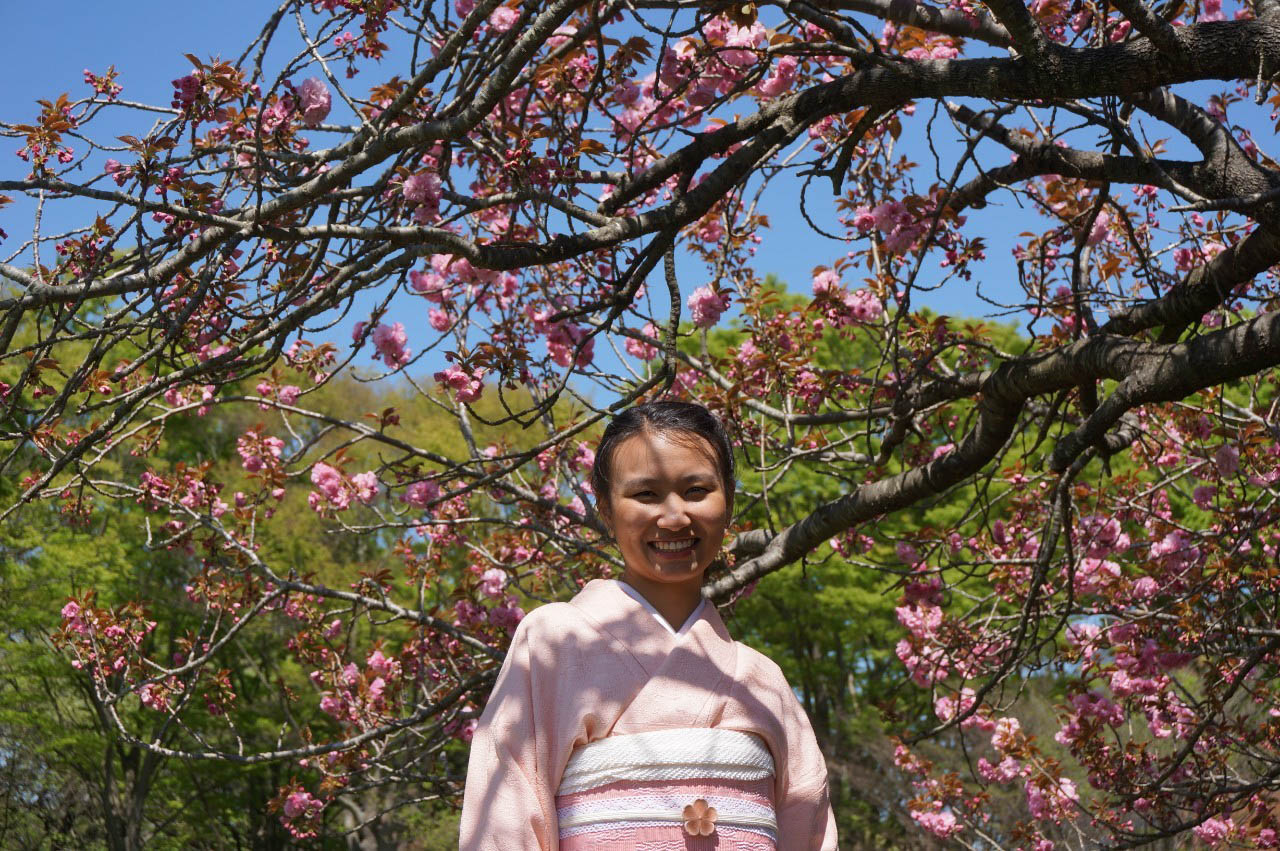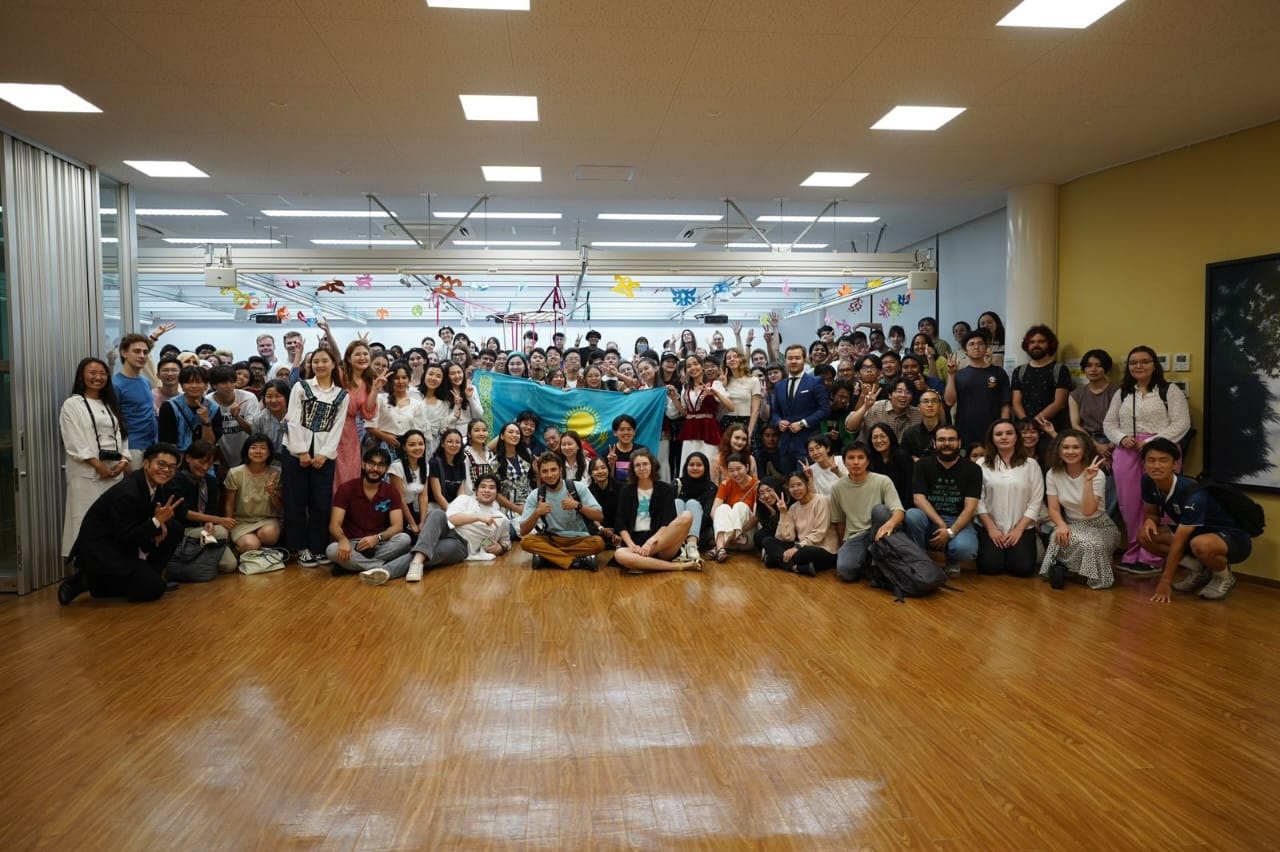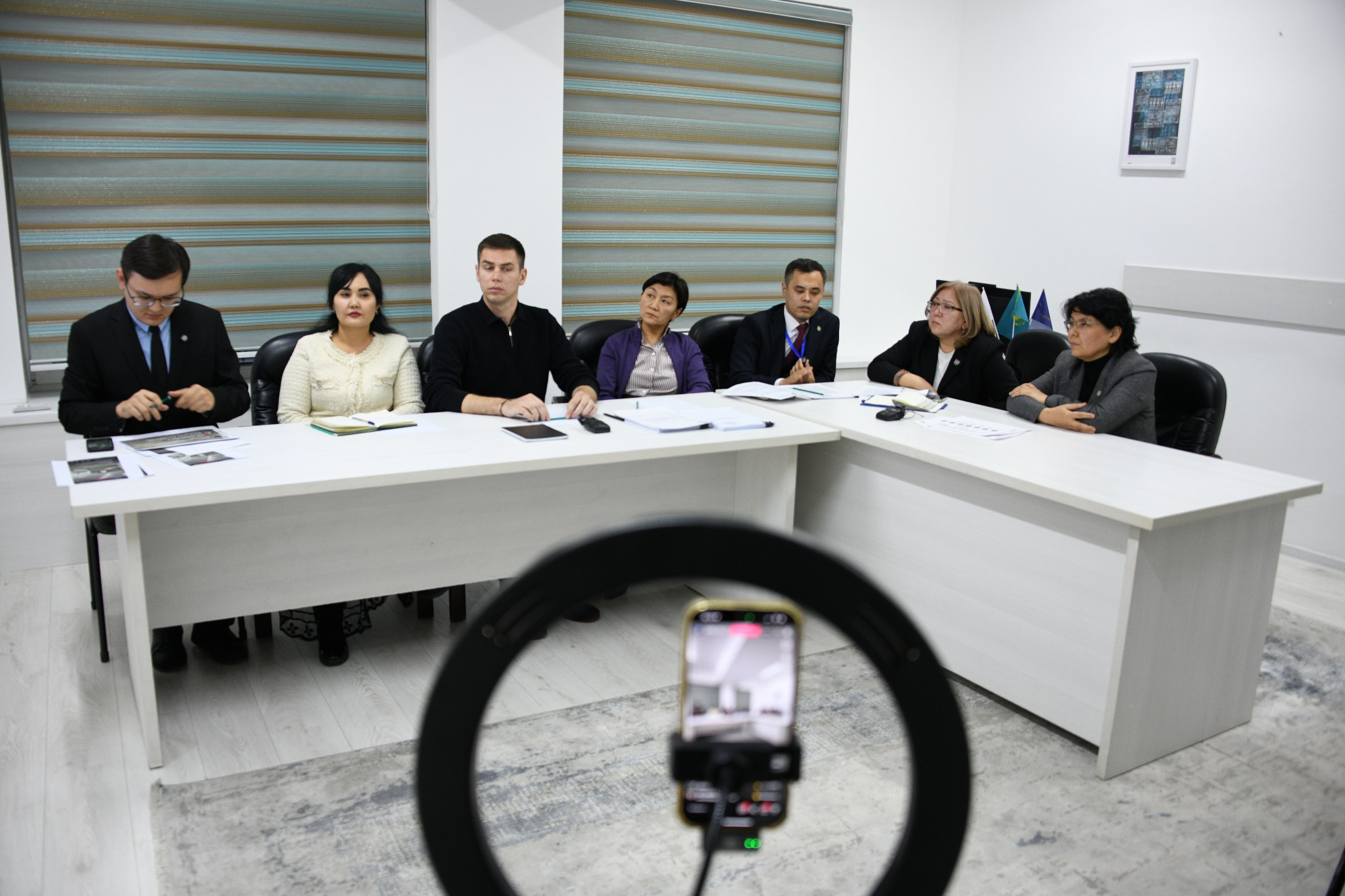Academic mobility is a great opportunity

Sanimgul Nazarbekova, a 4th year student of the educational program "Meteorology", has recently returned to the Japanese University of Tsukuba for advanced training under the academic mobility program. In this connection we had a little talk with Sanimgul.
-Sanimgul, you exchanged knowledge through the academic mobility program at the University of Tsukuba in Japan. What message did you catch?
- The cooperation between Kaznu and the University of Tsukuba is just beginning. I saw the basic information on the university's social media pages. However, I did not pay much attention at the time. Later, the head of the department told me that the Japanese state has an opportunity to study at the University of Tsukuba in person. I took my time, prepared the documents the next day and handed them over to the people in charge. In such urgent moments it is very important to have such documents as a ready resume, motivation and recommendation letter and, most importantly, a certificate confirming that you have the necessary level of English.
- Why did you choose the State of Japan, University of Tsukuba, for your knowledge exchange?
- At first I didn't know about the cooperation between the two universities. And I had not considered the country of Japan for education before. I hear that the country of the rising sun is famous for its higher education system. So I had no doubt that I would gain valuable experience, and everything went as I thought it would.
- What changes have you noticed in Japan's education system?
- In Japan, classes are longer: in Kazakhstan one lesson lasts 50 minutes, in Kazakhstan one lesson lasts 75 minutes. At the same time, the new academic year starts not from September, but from April.
Since students themselves choose the programs they study, depending on their specialty, students from different courses with different backgrounds and experiences come together in one group. Depending on each student and their field of study, the paths, approaches to interpretation by the professors differ.
The main characteristic I noticed is that the Japanese focus on fully internalizing information not only in theory but also in practice. Whether it is when a particular topic is explained or through assignments provided after each class, the student makes an effort to apply what they have learned to everyday life and develop the ability to think critically. In addition, the university ensures that the professors are constantly developing, not just the students who receive a quality education.

- How has the field of meteorology developed in Japan?
- Since the state is located on an island, different natural disasters occur there according to each stage. For example, in June-October there are often typhoons. They can bring storms with wind speed up to 55 m/s and in case of typhoon 150-200 mm of precipitation can fall in a day (this is the annual amount of precipitation falling in the southern, south-western regions of Kazakhstan). Therefore, local scientists and institutes are actively studying atmospheric phenomena and developing warning systems. In case of threat of a natural disaster, a message with a loud sound is necessarily delivered to the cell phone of each resident. In addition, the official website of the Japanese Meteorological Agency is actively working, which informs about certain changes.
Japan plays an important role in global meteorological organization and joint research. During the study, it was ordered to see the Tsukuba Regional Meteorological Instrument Center. This institution has been calibrating instruments at meteorological observation posts to an international standard (SI unit) since 1944. In addition, this center conducts international training seminars for calibration, technical training and maintenance of expert meteorological instruments. Thus, this small center will make a significant contribution to the World Meteorological Organization's Regional Association II in calibrating meteorological instruments and maintaining and improving the accuracy of meteorological observations. The center is currently implementing the RIC Tsukuba Package program and providing special training in countries such as Bangladesh, Mozambique and Sri Lanka.
- What shortcomings have you noticed?
- Like any country, Japan has its own disadvantages. For example, students are prone to stress and pressure due to the intense study load. Therefore, in such a society, there is no escape to personality stagnation. Also, what was difficult for me at first is that English was not widely spoken. Most Japanese people are elderly, so they don't need to speak English much. Nowadays, young people are becoming more exposed to foreign culture and learning foreign languages. However, when you go from big cities to another region, it is very difficult not to know Japanese. On the one hand, I think this point can also be seen as an advantage because Japanese people have a great respect for their mother tongue and maintain a high status.
- Thank you for the story.
Aida Munaitpasova,
Fourth Year Advisor of the Department of Meteorology and Hydrology


